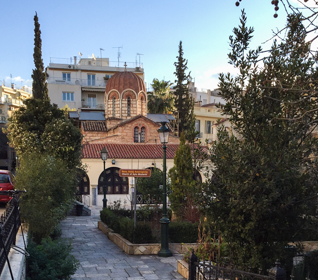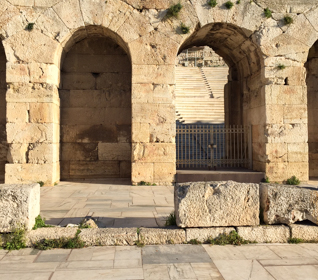- Future Students
- Current Students
- Faculty
- Staff
- Alumni
- Others
Gods and philosophers
As part of the University of Guelph-Humber’s international study initiative, students are enriching their learning experience through seven global study opportunities.
In part three of this study abroad series, we learn about seeking answers to life’s most pertinent and enduring questions.
***



“These questions exist throughout the history of philosophy. What does it mean to be human? What kind of life should I live? How do I live with others? With myself? How can I be happy when I’m not getting what I want?” asks Greece study abroad course director, Dr. Matthew LaGrone.
To explore these questions, UofGH students are returning to the heartland of Western philosophy, of Christianity, and of democracy, as they walk the streets of Athens.
“To understand this melding of contemporary Athens with ancient Athens, it’s important to look at Greek history, both ancient and contemporary, ancient Greek religion and mythology, and then to look at contemporary Greek religion as well. This history still very much affects us today.”
Students are examining the shifts that have occurred in Greek religious life, from pagan roots to monotheism; they’re examining why philosophers were so very negatively oriented toward democracy originally; they’re examining Socrates, and the movement within philosophy from the study of the heavens to the study of the human heart.
“To have sustained time to contemplate such questions is a wonderful opportunity,” says Dr. LaGrone. “It’s about examining life as we explore the large questions that come out of philosophy and religion. That seek to answer those most persistent and enduring questions that have no final answer, and that each person must come up with individually.”

